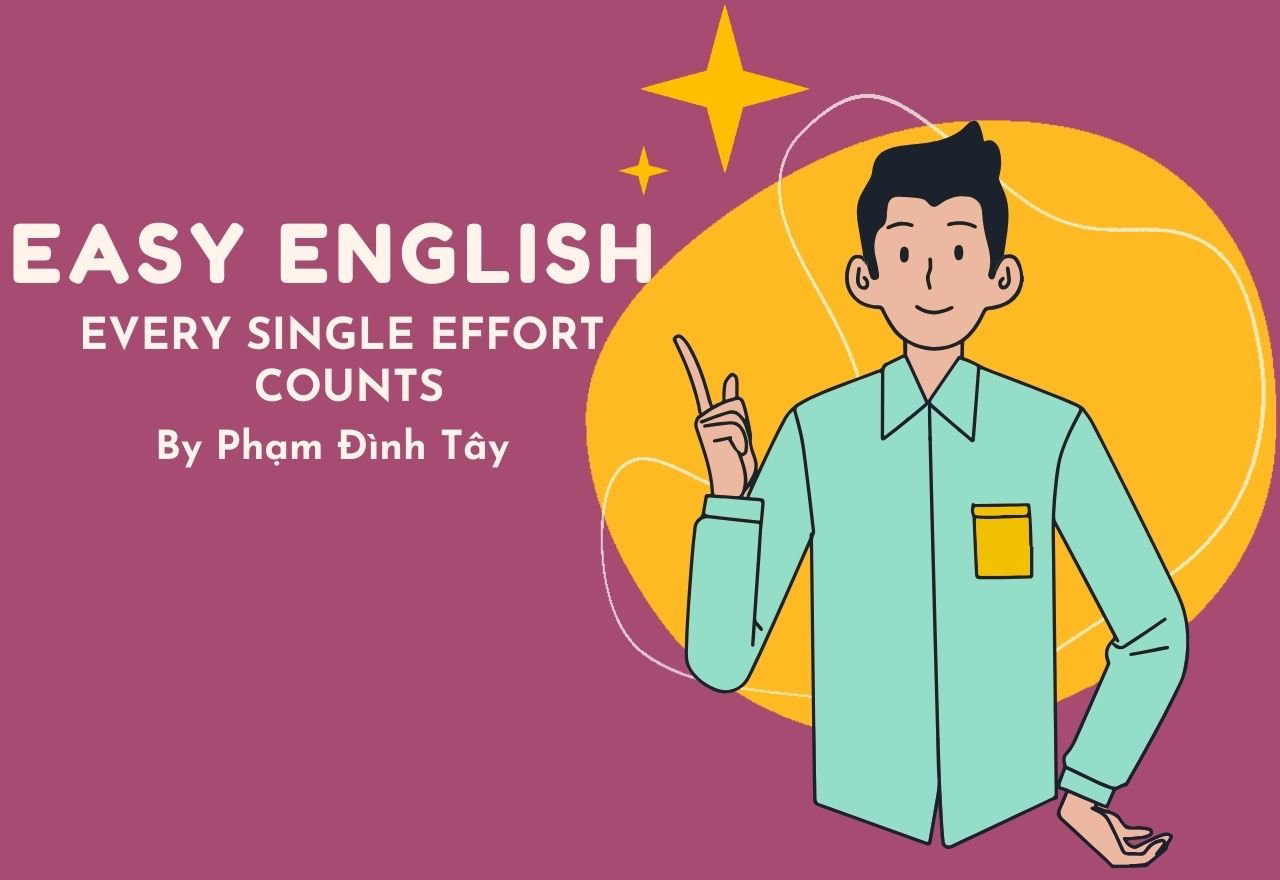|
I can’t forget the confused old man on the bus the other day |
Tôi không thể quên ông già bối rối trên xe buýt ngày hôm đó |
|
I was part of a miserable incident on a bus. This was one evening just before Christmas and I had somewhere to be. As I got on, the driver was trying and failing to communicate with an old man holding a shopping trolley. “He says he wants to go to Enfield,” said the driver. The poor chap with the trolley looked at me and said nothing. His hands had a tremor about them. “Enfield?” I asked. He just stared at me. If he really had wanted to get to Enfield, far north London, by bus, from where we were in far west London, he was in for a very long night indeed. |
Tôi là một phần của một sự cố đáng tiếc trên xe buýt. Đây là một buổi tối ngay trước Giáng sinh và tôi phải đến một nơi nào đó. Khi tôi lên xe, tài xế đã cố gắng nhưng không giao tiếp được với một ông già đang giữ một cái xe đẩy hàng. "Ông ấy nói rằng ông ấy muốn đến Enfield", tài xế nói. Anh chàng tội nghiệp với chiếc xe đẩy nhìn tôi và không nói gì. Tay anh ta run rẩy. "Enfield?" Tôi hỏi. Anh ta chỉ nhìn chằm chằm vào tôi. Nếu anh ta thực sự muốn đến Enfield, cực bắc London, bằng xe buýt, từ nơi chúng tôi ở cực tây London, anh ta sẽ phải trải qua một đêm rất dài. |
|
Wondering if his English wasn’t good, I tried every other language I could muster. He said nothing, but when I tried Croatian on him, there seemed to be some reaction. A Polish woman pitched in but got no further. I had no clue what to do, where to take him or what anyone else could have done for him. We didn’t even know his name, and he was either unwilling or unable to tell us. |
Tự hỏi liệu tiếng Anh của anh ấy có tốt không, tôi đã thử mọi ngôn ngữ khác mà tôi có thể nghĩ ra. Anh ấy không nói gì, nhưng khi tôi thử nói tiếng Croatia với anh ấy, có vẻ như có một số phản ứng. Một người phụ nữ người Ba Lan đã tham gia nhưng không có tiến triển gì hơn. Tôi không biết phải làm gì, đưa anh ấy đi đâu hoặc bất kỳ ai khác có thể làm gì cho anh ấy. Chúng tôi thậm chí còn không biết tên anh ấy, và anh ấy không muốn hoặc không thể nói cho chúng tôi biết. |
|
The bus controller radioed for us to get going and bring him to the depot. But at the next stop nobody could get on as he was standing in the way. Gently, I tried to usher him to a seat, but he cursed and pushed me away. Stalemate. We were going nowhere. A couple of other passengers tried out yet more languages on him. One woman pushed past me and him, cursing us both. An argument ensued. Still the poor man stood there, shaking, stuck between anger and confusion. Another bus pulled in behind. Our driver got out of his seat to join in our discussion. More opinions and suggestions, kind and unkind, helpful and unhelpful, were exchanged.
|
Người điều khiển xe buýt đã liên lạc qua radio để chúng tôi đi và đưa ông ta đến bến xe. Nhưng ở điểm dừng tiếp theo, không ai có thể lên xe vì ông ta đang đứng chắn đường. Tôi nhẹ nhàng đưa ông ta đến chỗ ngồi, nhưng ông ta chửi thề và đẩy tôi ra. Bế tắc. Chúng tôi chẳng đi đến đâu cả. Một vài hành khách khác lại cố gắng nói thêm nhiều ngôn ngữ khác với ông ta. Một người phụ nữ đẩy tôi và ông ta qua một bên, chửi rủa cả hai chúng tôi. Một cuộc cãi vã nổ ra. Người đàn ông tội nghiệp vẫn đứng đó, run rẩy, mắc kẹt giữa sự tức giận và bối rối. Một chiếc xe buýt khác dừng lại phía sau. Tài xế của chúng tôi rời khỏi chỗ ngồi để tham gia vào cuộc thảo luận của chúng tôi. Thêm nhiều ý kiến và đề xuất, tử tế và không tử tế, hữu ích và không hữu ích, đã được trao đổi.
|
|
Then someone said, “He’s gone!” And he had. “There he is!” shouted someone else, pointing at the bus that had been behind but was now passing us. And there he was, with his trolley, standing, still shaking, in the same place on a different bus. We all made sad faces at one another, making a poor job of disguising our relief that he was now someone else’s problem. I can’t get him out of my mind. |
Rồi có người nói, "Anh ta đi rồi!" Và anh ta đã đi rồi. "Anh ta kia kìa!" một người khác hét lên, chỉ vào chiếc xe buýt đã ở phía sau nhưng giờ đã đi ngang qua chúng tôi. Và anh ta ở đó, với chiếc xe đẩy, đứng đó, vẫn run rẩy, ở cùng một chỗ trên một chiếc xe buýt khác. Tất cả chúng tôi đều làm mặt buồn với nhau, không thể che giấu được sự nhẹ nhõm của mình rằng giờ anh ta là vấn đề của người khác. Tôi không thể quên anh ta khỏi tâm trí mình. |
Vocabulary List
-
The other day (Phrase) /ði ˈʌðər deɪ/: A recent day in the past, not long ago.
Vietnamese: Ngày hôm đó.
Example: I saw her at the supermarket the other day. -
Miserable incident (Noun) /ˈmɪzərəbl ˈɪnsɪdənt/: An unfortunate or unpleasant event.
Vietnamese: Sự việc đáng buồn.
Example: The miserable incident ruined his whole day. -
Shopping trolley (Noun) /ˈʃɒpɪŋ ˈtrɒli/: A cart used for carrying goods in a supermarket.
Vietnamese: Xe đẩy mua sắm.
Example: She filled the shopping trolley with groceries. -
A poor chap (Noun) /ə pʊr tʃæp/: A man or boy who is pitiful or unfortunate.
Vietnamese: Một chàng trai tội nghiệp.
Example: The poor chap dropped all his books on the ground. -
Have a tremor (Verb Phrase) /hæv ə ˈtrɛmər/: To shake slightly due to fear, cold, or illness.
Vietnamese: Bị run rẩy.
Example: He seemed to have a tremor in his hands after the accident. -
Stare at someone/something (Verb Phrase) /steər æt ˈsʌmwʌn ˈsʌmθɪŋ/: To look fixedly at someone or something for a long time.
Vietnamese: Nhìn chằm chằm vào ai đó/cái gì đó.
Example: Everyone stared at the strange man in the corner. -
Muster (Verb) /ˈmʌstər/: To gather courage, strength, or support.
Vietnamese: Lấy hết sức, dùng hết khả năng.
Example: She mustered all her courage to give the presentation. -
Croatian (Adjective, Noun) /kroʊˈeɪʃən/: Related to Croatia or its people.
Vietnamese: Thuộc về Croatia; người Croatia.
Example: The Croatian team played exceptionally well. -
Polish (Adjective, Noun) /ˈpɒlɪʃ/: Related to Poland or its people.
Vietnamese: Thuộc về Ba Lan; người Ba Lan.
Example: The Polish language is quite challenging to learn. -
Pitch in (Verb Phrase) /pɪtʃ ɪn/: To contribute or help with effort or money.
Vietnamese: Chung tay, góp sức, tham gia.
Example: Everyone pitched in to clean up after the party. -
Get no further (Verb Phrase) /ɡɛt noʊ ˈfɜːrðər/: To make no progress.
Vietnamese: Không tiến thêm được nữa, không tiến triển thêm.
Example: We got no further in the negotiations. -
Have no clue (Verb Phrase) /hæv noʊ kluː/: To not know or understand something.
Vietnamese: Không biết gì cả.
Example: I have no clue where he went. -
Depot (Noun) /ˈdiːpoʊ/: A place where goods or vehicles are stored or repaired.
Vietnamese: Nhà kho, bến xe.
Example: The bus will stop at the depot for maintenance. -
Stand in the way (Verb Phrase) /stænd ɪn ðə weɪ/: To obstruct or prevent progress.
Vietnamese: Đứng cản đường.
Example: Nothing can stand in the way of her ambitions. -
Gently (Adverb) /ˈdʒɛntli/: In a soft, kind, or careful manner.
Vietnamese: Một cách nhẹ nhàng.
Example: He spoke gently to calm her down. -
Usher (Verb) /ˈʌʃər/: To guide someone somewhere.
Vietnamese: Dẫn đường, đưa đi.
Example: She ushered the guests into the dining room. -
Curse (Verb) /kɜːrs/: To use offensive words to express anger.
Vietnamese: Chửi rủa.
Example: He cursed loudly when he missed the train. -
Stalemate (Noun) /ˈsteɪlˌmeɪt/: A situation where no progress is possible.
Vietnamese: Bế tắc.
Example: The negotiations ended in a stalemate. -
Push past someone (Verb Phrase) /pʊʃ pæst/: To force one's way through.
Vietnamese: Chen qua, đẩy ai đó ra 2 bên (để đi qua) .
Example: He had to push past the crowd to get to the exit. -
Ensue (Verb) /ɪnˈsuː/: To happen as a result of something.
Vietnamese: Xảy ra sau đó.
Example: Chaos ensued after the announcement. -
Shaking (Adjective) /ˈʃeɪkɪŋ/: Trembling or quivering.
Vietnamese: Run rẩy.
Example: Her hands were shaking from the cold. -
Anger (Noun) /ˈæŋɡər/: A strong feeling of displeasure or rage.
Vietnamese: Sự tức giận.
Example: His face turned red with anger. -
Confusion (Noun) /kənˈfjuːʒən/: A state of uncertainty or misunderstanding.
Vietnamese: Sự nhầm lẫn, hoang mang.
Example: The sudden change caused a lot of confusion. -
Pull in (Verb Phrase) /pʊl ɪn/: To arrive at a destination, usually in a vehicle.
Vietnamese: Tấp vào, đến nơi.
Example: The train pulled in to the station on time. -
Exchange (Verb) /ɪksˈtʃeɪndʒ/: A conversation or interaction involving giving and receiving.
Vietnamese: Trao đổi.
Example: They had a heated exchange during the meeting. -
Make a sad face (Verb Phrase) /meɪk ə sæd feɪs/: To express sadness through facial expressions.
Vietnamese: Làm mặt buồn.
Example: She made a sad face when she heard the bad news. -
Make a poor job of disguising (Verb Phrase) /meɪk ə pʊr dʒɒb əv dɪsˈɡaɪzɪŋ/: To fail at hiding emotions or intentions.
Vietnamese: Không giỏi che giấu, không thể che giấu.
Example: He made a poor job of disguising his frustration. -
Get out of someone's mind (Verb Phrase) /ɡɛt aʊt əv ˈsʌmwʌnz maɪnd/: To stop thinking about someone or something.
Vietnamese: Quên ai đó/điều gì đó.
Example: She couldn’t get the song out of her mind all day.

